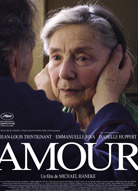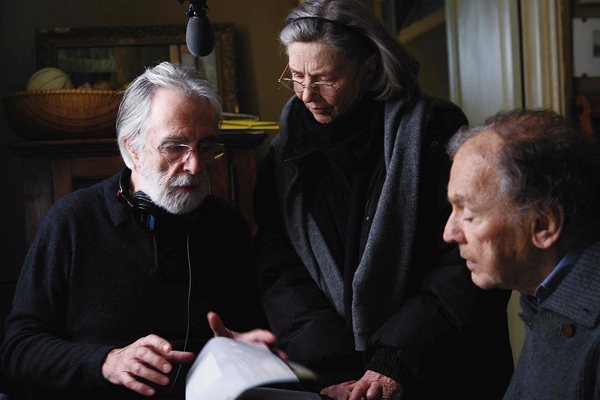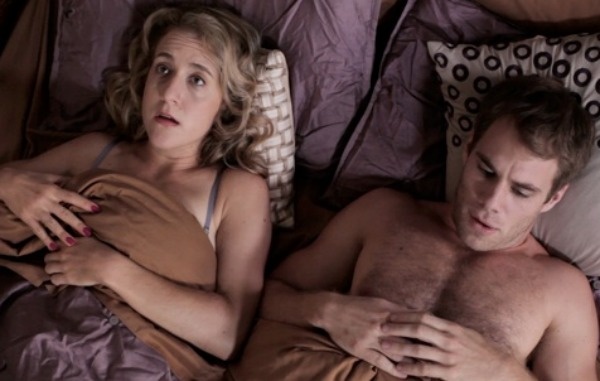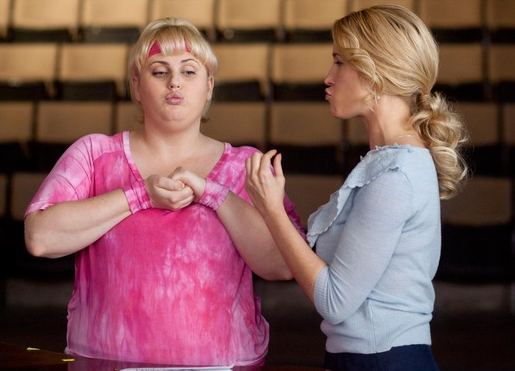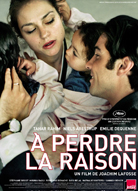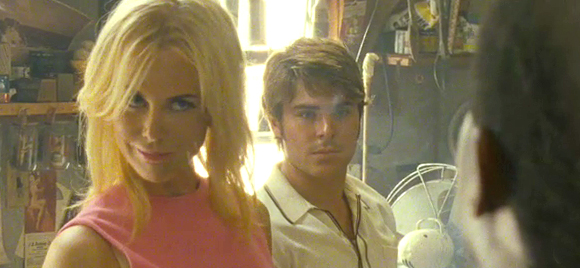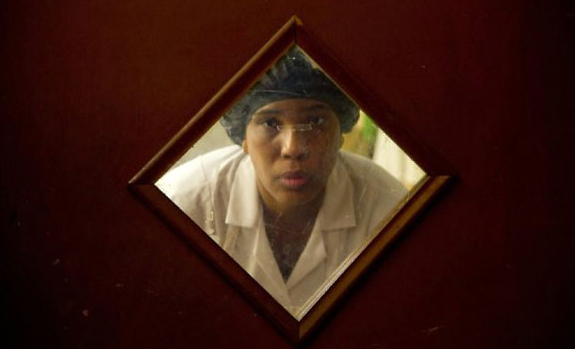Seventy year-old Rene (Eddie Garcia) is an elderly gay man who fits quite neatly into the crowded movie trope of "Grumpy Old Man." He doesn't have a lawn but he'd clearly want his neighbors to get off of it if he did. He doesn't seem to love anyone or anything other than his dog Bwakaw.
 Eddie Garcia and Princess star in "Bwakaw", an Oscar contender from The Philippines
Eddie Garcia and Princess star in "Bwakaw", an Oscar contender from The Philippines
They say that a dog is a man's best friend but I don't think that it's usually meant quite so literally. Rene is so grumpy that you aren't always sure he loves his faithful canine shadow. In one stinging heartbreakmidway through the film a veterinarian asks him "don't you ever touch your dog?" and it occurs to you that you've rarely seen him do so.
But Bwakaw isn't a demanding girl. She follows Rene everywhere he goes… except inside his house. She's been banned for making a mess the last time she was there and one imagines that was long ago; Rene doesn't let things go easily. He still sleeps, for example, in his boyhood home and he's still quite attached to all of his mother's things including her devout Catholicism though he isn't religious himself (This dichotomy informs several of the film's sharpest comic beats but that's a topic for a much longer piece.) So each night Bwakaw curls up sadly in the dirt at the bottom of the stairs leading to the sad man's bedroom and waits until morning to see her master again.
It's important to note here that Bwakaw the dog is a sandy girl. She'd be barely perceptible from Bwakaw the movie, with its terminally washed out light, colorless rooms, and graying characters, were it not for her happy trot and zest for life. Her name translates to "Voracious" though she's curiously slim and bony for a dog that likes to eat.
Initially it's not at all clear why this film, a true gem from director Jun Lana and an absolutely worthy Oscar submission, is titled as it is. Bwakaw is not so much an active participant as a shadow, or a sidekick if you're feeling generous. For a good hour the film is little more than a perceptive character study -- not that those aren't welcome -- of a lonely gay man who's angry that he missed out on a full life. In many ways Rene is a shadow in his own movie. Most of the colorful subplots, broad comedic bits, and vibrant personalities belong to other members of the cast. Rene's "friends" (I use the term loosely given that he's consistently at odds with most of them) are two flamboyant gay men, a co-worker planning a trip to Canada, a rough taxi driver, a local priest who hears his confessions, and a woman losing her memory in a nearby old folk's home.
But when Bwakaw becomes ill Rene is finally shaken out of his ornery complacency and gradually begins to feel his life again instead of just planning for his death. The film beautifully and fluidly shifts to compliment his journey, letting more light and color and vibrancy into the images.

Many "feel good" inspirational movies boost the spirit synthetically by glossing over life's darkest moments or wishing them away with tunnel vision on the triumphant stuff. Rene's story, however harsh and lonely in its particulars, contains far richer inspiration at its core. Rene is so focused on mortality that he keeps forgetting to live but there's no point in climbing in the coffin before your time. Embrace whatever tiny happiness comes your way. Live. B+/A-

Related Pages
2012 Foreign Film Oscar Submissions Pt. 1: Albania to Italy
2012 Foreign Film Oscar Submissions Pt. 2: Japan to Vietnam
Foreign Film Finalist Prediction List just a little guesswork
More NYFF
Lincoln's Noisy "Secret" Debut
The Paperboy & the Power of Nicole Kidman's Crotch
Frances Ha, Dazzling Brooklyn Snapshot
Barbara Cold War Slow Burn
Our Children's Death March
Hyde Park on Hudson Historical Fluff
 Friday, October 26, 2012 at 1:01PM
Friday, October 26, 2012 at 1:01PM  One of my favorite films from last year's New York Film Festival was The Loneliest Planet starring Gael García Bernal. I sometimes jokingly think of the pocket-sized actor as the mascot of Oscar's Foreign Language Film Category since he appears in frequent submissions and because he really ought to have been nominated himself by now. Worthy performances have included Amores Perros and Bad Education but he's top notch in just about everything whether rescuing a movie from itself (see The Crime of Father Amaro) or being self-effacing and excellent when the film is so much more than just a leading actor's vehicle (see the neo classic Y Tu Mama Tambíen or the Chilean Oscar submission No. No really, see them when you get a chance.) I hadn't really forgotten about The Loneliest Planet but I had given up hope of the ever-delayed theatrical release which has finally come to pass. It opens today in limited release hot on the heels of its Best Picture citation at the Gotham Awards.
One of my favorite films from last year's New York Film Festival was The Loneliest Planet starring Gael García Bernal. I sometimes jokingly think of the pocket-sized actor as the mascot of Oscar's Foreign Language Film Category since he appears in frequent submissions and because he really ought to have been nominated himself by now. Worthy performances have included Amores Perros and Bad Education but he's top notch in just about everything whether rescuing a movie from itself (see The Crime of Father Amaro) or being self-effacing and excellent when the film is so much more than just a leading actor's vehicle (see the neo classic Y Tu Mama Tambíen or the Chilean Oscar submission No. No really, see them when you get a chance.) I hadn't really forgotten about The Loneliest Planet but I had given up hope of the ever-delayed theatrical release which has finally come to pass. It opens today in limited release hot on the heels of its Best Picture citation at the Gotham Awards.


